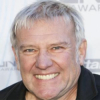Alex Lifeson

Alex Lifeson
Alexandar Zivojinovich, OC, better known by his stage name Alex Lifeson, is a Canadian musician, best known as the guitarist of the Canadian rock band Rush. In 1968, Lifeson co-founded the band that would become Rush, with drummer John Rutsey and bassist and singer Jeff Jones. Jones was replaced by Geddy Lee a month later, and Rutsey was replaced by Neil Peart in 1974; the band's line-up has remained the same ever since...
NationalityCanadian
ProfessionGuitarist
Date of Birth27 August 1953
CityFernie, Canada
CountryCanada
Not particularly... the reason is because we made a promise to ourselves years ago that whatever we did in the studio we would try to recapture live.
I dreamed of having a Gibson. I had a cheap Kent - you know, a Japanese guitar - and then a Kanora, a Japanese guitar. I borrowed a friend's Harmony for years. To have a Gibson was really, really my dream as a kid.
My parents got me a $25 Kent steel-string acoustic guitar when I was around 12. The following Christmas, my parents bought me a Conora electric guitar. It looked almost like a Gretsch. It cost $59, and my mom still has it.
With 'One Little Victory,' I love the idea that Neil is the one who starts the record and he starts it with such a fury and it just says, 'We're back.' And the whole sentiment of that song about being aware of those little successes -- the daily little things that really count -- that we so often take for granted.
When we signed our deal in 1974, we'd already been together for six years. When they lowered the drinking age in Ontario in 1971 to 18 years, we went from playing two or three high schools in a month to playing clubs two or three times a week.
A lot of '2112' was written in the back seat of a car and in cold dressing rooms while on tour in northern Ontario.
I think the whole '2112' album took somewhere around a week to do.
It's a wonderful thing to be able to see your music going from generation to generation.
The Rush fans are pretty crazy everywhere, but they're particularly wild in South America.
The thing is, I don't take anything for granted anymore - my family, my music, you name it.
I think Rush have always had this reputation, particularly to non-fans, of being an ultra-serious and cerebral group when, in fact, the reverse is true. We don't take ourselves seriously at all. Sure, we take our music seriously, but that's altogether different.
Bryan Adams might not be what I want to put on, but he's a pop singer with a great voice and great guitar tone. Plus, he's done more for Canada than Rush have, because he works all the time. I envy him for that.
Hendrix was a natural genius who played many beautiful styles. Talent as great as his doesn't come through life very frequently. Hendrix was one in a billion.
I don't know how many times I heard older people, and not just parents but just older people, say, 'Oh, my God. Your generation is just totally nuts. You have no sense of what it was really like, when it was great.' And every generation has that same feeling, you know?